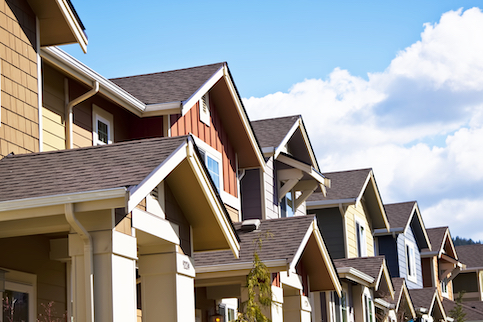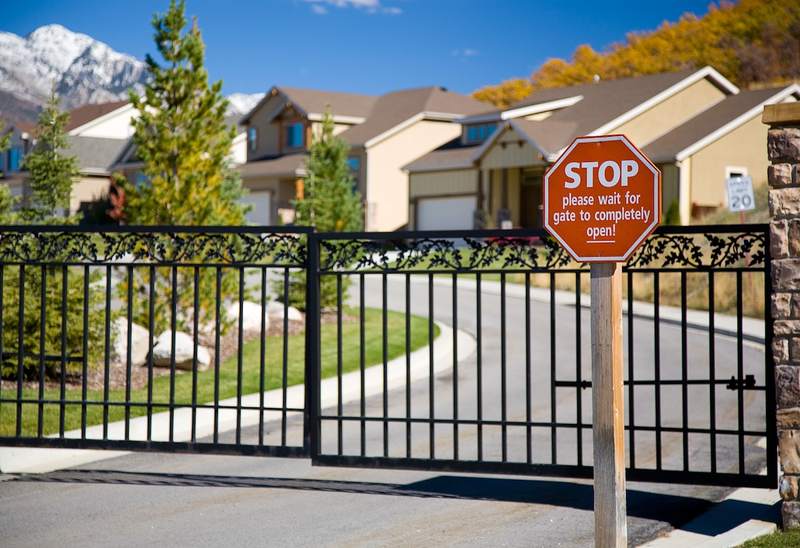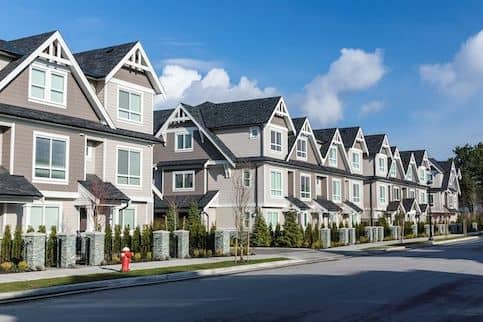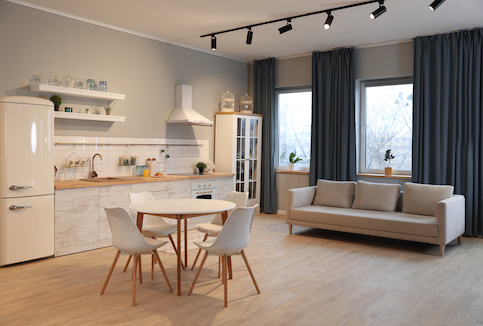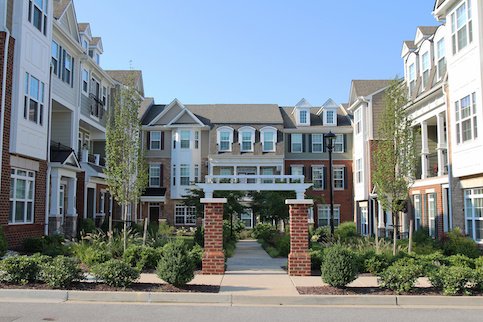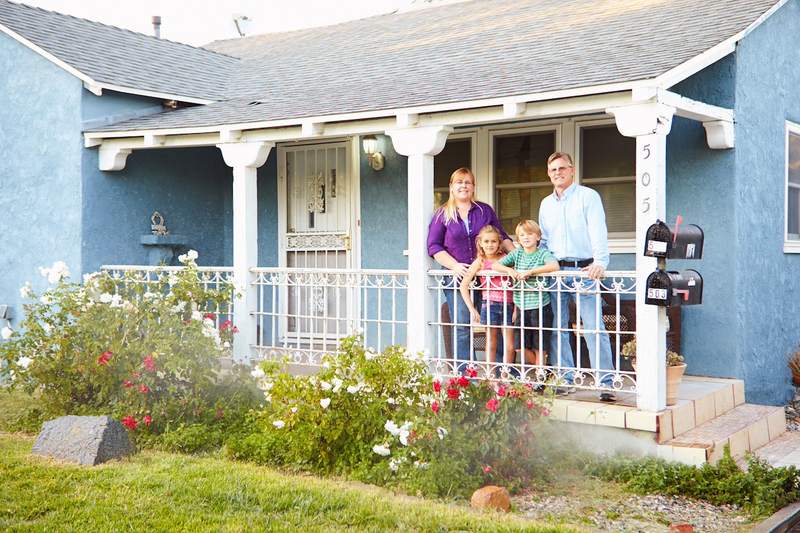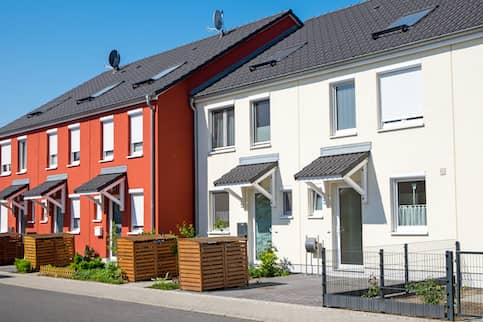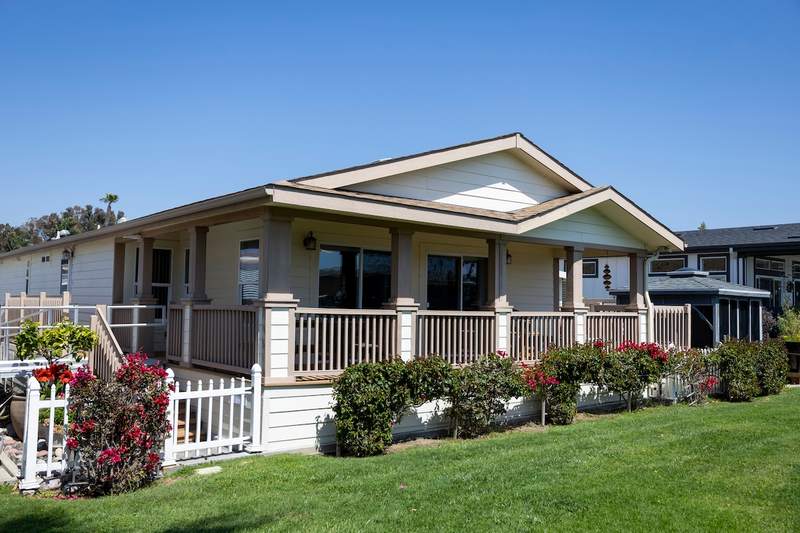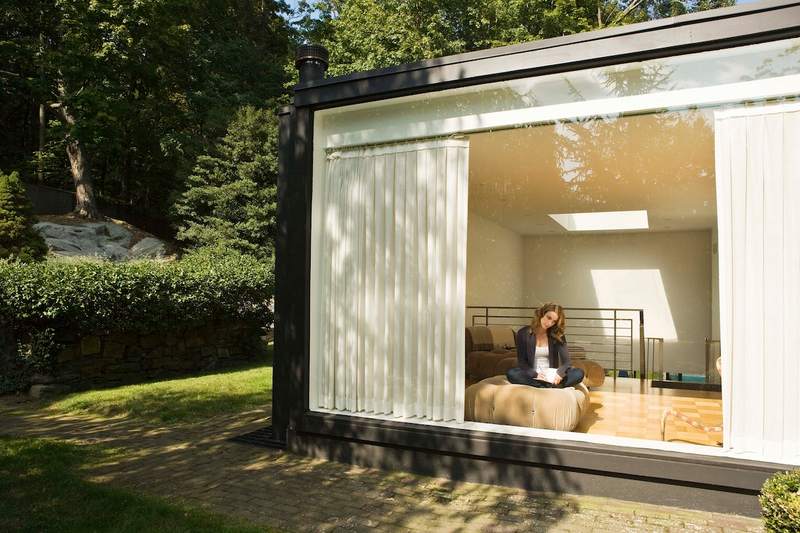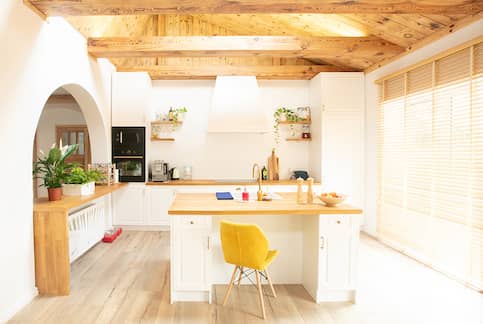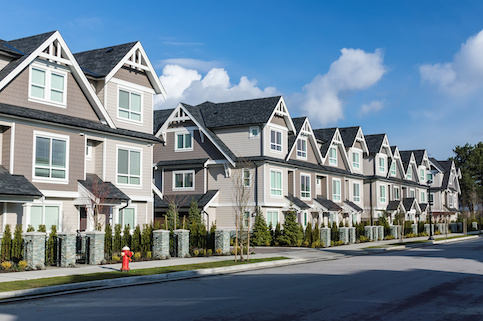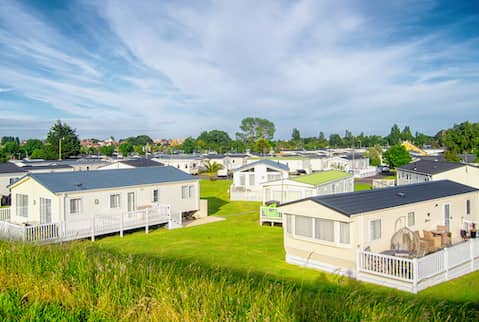Deciding on the right type of home can be tough, especially if you’re a first-time home buyer.
In your search, you may have come across townhouses as an option. But what is a townhouse, and how is it different from other types of houses like condominiums or detached homes?
Let’s learn more about townhomes, including the pros and cons of owning one.
Townhouse Definition
A townhouse is an individually owned, multifloor home attached to one or more units. You can often spot a townhouse lining the streets in dense suburban and urban areas. Residents own and are responsible for both the interior and exterior of their townhome.
Townhouses tend to resemble traditional, detached homes but generally operate more like condominiums, or condos, in that they’re all part of a larger governing body. So, if you buy a townhouse, you’re most likely going to be a part of a homeowners association (HOA).
Why Is It Called A Townhouse?
Townhouses began in early England, where the term was introduced to refer to any house that a family owned “in town” while living primarily in the country. Today, a townhouse is much more than that.
Today’s townhomes emphasize vertical space to be economical with square footage in populated areas, so they’re usually made up of multiple stories. Although their space economizing is like a zero lot line, townhouses typically have outdoor space, like a front and back yard.
See What You Qualify For
Buy A Home
Discover mortgage options that fit your unique financial needs.

Refinance
Refinance your mortgage to have more money for what matters.
Tap Into Equity
Use your home’s equity and unlock cash to achieve your goals.
What Is The Difference Between A Condo And A Townhouse?
Townhouses and condos are different from single-family homes in that they exist in buildings or developments where multiple individual households reside closely together, each in their own unit or home.
Condo Vs. Townhouse
In the case of both townhouses and condos, each unit is separately owned (as opposed to an apartment building, where one person owns many units and rents them out to occupants) and is typically occupied by the owner. However, it may be possible for individual units to be rented out by their owners, depending on HOA or condo association rules.
Typically, condo owners are only responsible for their units inside and pay HOA fees that cover costs to maintain the outside of the building and any shared common areas. Townhouse communities typically have lower HOA fees than condos because most maintenance falls to individual homeowners. Townhomes also offer more customization freedom than condos, which come with renovation restrictions.
Research any HOA rules for townhouses you’re considering. Each HOA is different, and you don’t want to move into a community only to realize it’s much more restrictive than you’d like.
You should also keep in mind that although you may be able to get a lower HOA bill with a townhome, townhomes often cost more than condos because you own more space.
Should You Buy Or Rent A Townhouse?
Before buying a townhouse, it’s important to consider the factors at play. For example, you may not be able to afford a down payment on a townhome. If this is the case, it might be better to rent instead, because this option can be more cost-effective.
It’s key that you understand your financial situation when choosing between renting and buying a house. If you have unsteady pay or employment, renting a townhome could be easier than getting a mortgage, and it could give you more flexibility. By contrast, if your income and employment are stable, buying a townhome may be a better option for you because you’d begin to accumulate equity.
Buying A Townhouse
If you can purchase the home, consider the neighborhood it’s in. An up-and-coming community might promise more equity, which appeals to real estate investors pursuing townhouses as an investment property, although it requires the right lender.
If that’s the route you’re interested in, keep in mind the necessary prep work. You’ll have to establish a budget and evaluate the rental returns, among other measures.
Pros And Cons Of Townhouse Living
Here are a few more benefits and drawbacks to living in or owning a townhouse:
Pros
- You can often find a townhouse with monthly costs similar to renting, with the added benefit of building equity on a home you own.
- Since townhouses are usually smaller than detached homes, maintenance tends to be less costly or labor-intensive.
- If you can’t afford a detached house just yet, a townhome is a more affordable way for first-time home buyers to get acquainted with homeownership.
- In contrast to a condo, owning a townhouse usually means having your own yard, which can greatly benefit you if you have pets or just want a place to care for your own garden.
- You typically get more freedom to make decisions about both the inside and outside of your home with a townhouse than with a condo.
- You may have access to amenities, such as a community pool.
Cons
- If you don’t want to be governed by HOA rules, you’ll probably be limited in your search for detached homes (though HOAs can also be common in detached-home neighborhoods, depending on your area).
- Since you share a wall, there’s less privacy with a townhome than a detached home, similar to a duplex.
- Compared to condos or rented apartments, townhomes come with more responsibility in terms of repairs and maintenance.
Many of the pros and cons of purchasing a townhome will depend on the community you live in, as community amenities, HOA rules, costs and required maintenance can vary a lot. Be sure to shop around and compare communities to find one that fits your wants and needs.
Townhouse FAQs
Below are some frequently asked questions about townhouses.
Who typically buys a townhouse?
A townhouse is a great option for many types of homeowners. Whether you’re an empty nester wanting to downsize, a first-time home buyer who wants to start off small, or a real estate investor looking to expand their portfolio, a townhouse might work for you.
What do I own when I buy a townhouse?
In most cases, you own the unit, the land it sits on and the land surrounding the townhome, including the front yard and backyard area as well as the home’s exterior.
Is a townhouse right for me?
Whether a townhouse is right for you depends on your needs and what you want out of homeownership. Some homeowners might like the idea of living in a smaller space that offers the freedom of detachment with the amenities of living in a condo. Others might have a strong preference for a detached home or condo and not be interested in a home that’s more of a middle ground between those two property types.
Take the first step toward buying a house.
Get approved to see what you qualify for.
The Bottom Line
Buying a townhouse can prove beneficial to home buyers because they can build equity without all the responsibilities of caring for the property. However, you should research all your house buying options before making a final choice.

Victoria Araj
Victoria Araj is a Staff Writer for Rocket Companies who has held roles in mortgage banking, public relations and more in her 15-plus years of experience. She has a bachelor’s degree in journalism with an emphasis in political science from Michigan State University, and a master’s degree in public administration from the University of Michigan.
